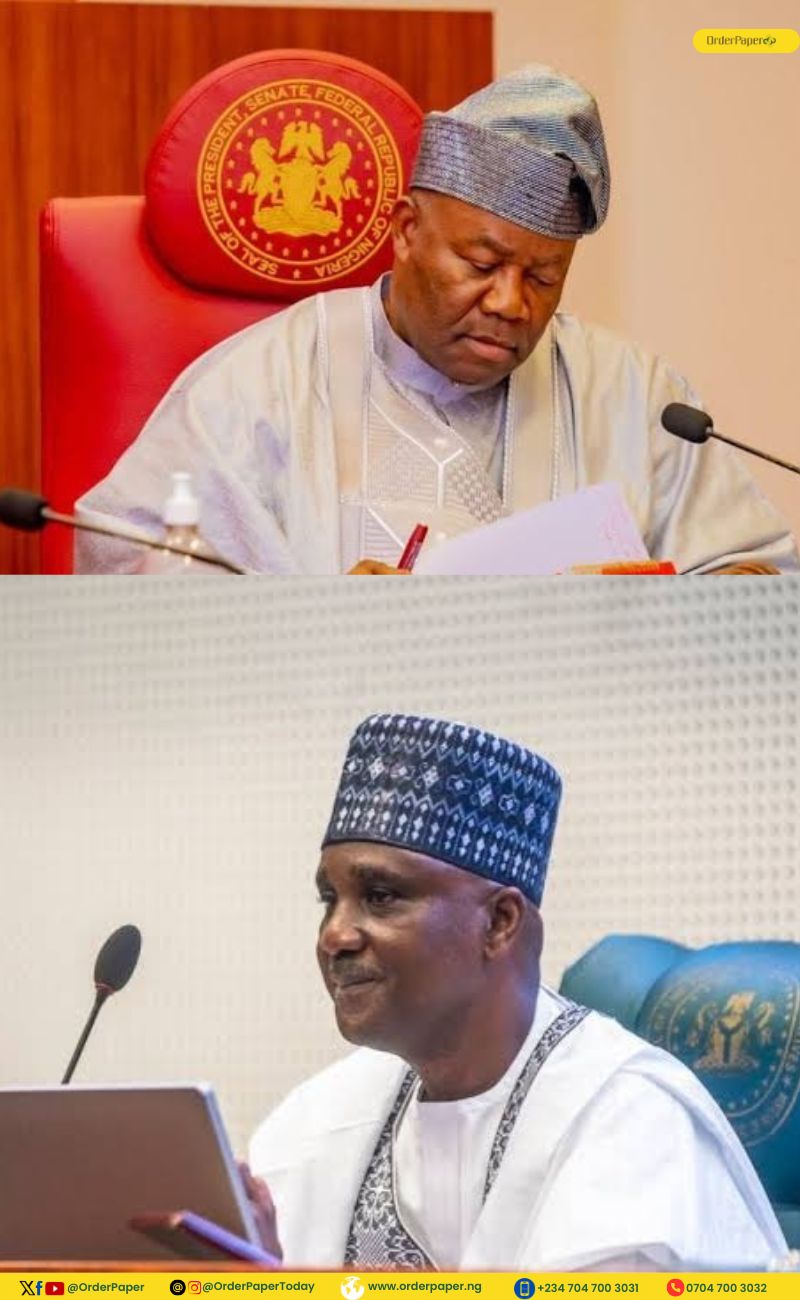According to the House Leader, the Legislative Agenda is a culmination of tireless efforts, broad consultations, and dedicated research aimed at addressing the critical challenges facing the country.
READ ALSO: FOR THE RECORD: Inaugural Speech by Tajudeen Abbas | 10th House Speaker

Stakeholders have tasked the Tenth (10th) House of Representatives to investigate the N150 billion Police Trust Fund (PTF) given that much hasn’t changed since the establishment of the pool fund.
They also called for a revisit of the four gender bills, which failed to pass in the Ninth (9th) National Assembly, and an amendment to the Universal Basic Education Commission 2004, to make it a management body that responsible for payment of basic education for teacher’s salaries, instead of an intervention body.
These views were aired at the Townhall on the 10th House of Representatives Legislative Agenda held at Transcorp Hilton, Abuja.
READ ALSO Abbas: “10th House under my leadership will surpass Gbajabiamila’s performance”
Executive Director, Rule of Law & Accountability Advocacy Centre, Ikechukwu Nwanguma, in his presentation, urged the National Assembly to investigate the N150 billion Police Trust Fund, which was created to tackle insecurity in the country.
“Why has insecurity in the country remained persistent? We need to get answers to this question If there’s no accountability and transparency then, we cannot make any headways.”
Mwanguma also called for a further probe of substandard equipment alleged to have been bought by the agency, which the Independent Corrupt Practice Commission (ICPC) was investigating.
“We need to know what is happening to that investigation as embarked upon by ICPC.”
The representatives of Nigeria Union of Teachers, Barr. Okoroafor Okechukwu, called for a National Teacher’s Scheme.
“Funding of Basic Education should be treated as a first-line charge from the Federation Account. The government must not commercialise education as they recently did by increasing school fees of Unity schools and universities.
“There is a need for the amendment of the Universal Basic Education Commission Act 2004, to make it a management body instead of an intervention body that will be charged with the responsibility of payment of Basic Education teacher’s salaries.
READ ALSO: 10th NASS: Parliamentary Monitoring Organisations set agenda for Youth Inclusion with POPULA
According to Ms. Ebere Ifendu, President of Women in Politics Forum (WIPP), the gender bills that failed in the 9th National Assembly will be re-presented for consideration.
“The five gender bills that failed to pass in the ninth National Assembly will be represented in the 10th Assembly. We have seen that all over the world, countries without affirmative action laws do not have adequate representation of women.
Take for instance Rwanda which is leading in women’s representation in the world, look at Sierra Leone which just passed the gender law you can see that in the last election, they had 17 women representatives but in the elections that just held recently in the country, women won 23 seats in the parliament. That is why we are counting on the legislature to give us a law that will increase the number of women in parliament,” she noted.
READ ALSO: As 10th NASS resumes, 10 issues that should top the agenda
In his opening remarks, the Majority Leader, Rep. Julius Ihonvbere, who chaired the Ad-hoc Committee on Legislative Agenda, said all inputs, comments, and views expressed at the meeting will be reflected in the document that the House will adopt as their legislative agenda.
“Today marks a pivotal moment in our nation’s history as we receive input to build a comprehensive blueprint to drive progress, prosperity, and inclusivity across our great nation. Though I chaired the Ad-Hoc Committee in the 9th Assembly, this is the first time we are having such a diverse group to consult with. Our efforts to get inputs from you all today is reflective of the content of our perceptions, policies, and commitments to deepen and expand the democratic space in our nation. I join Mr. Speaker in welcoming you all.
As representatives of the people, we are entrusted with the enormous responsibility of shaping the trajectory of our country’s development through our representation of the 360 constituencies in the country. The Legislative Agenda is a culmination of tireless efforts, broad consultations, and dedicated research aimed at addressing the critical challenges facing our nation while seizing the abundant opportunities that lie ahead.
Our vision for Nigeria is one of a prosperous and vibrant nation where every citizen can achieve their full potential. We envision a Nigeria where the economy is robust and diversified, infrastructure is world-class, education is transformative, healthcare is accessible to all, and governance is transparent and accountable.
This vision transcends partisan lines, and it is the collective aspiration of every Nigerian. For us in the House of Representatives, our vision is to work together, collaborate with other arms of government, and engage with stakeholders to create an environment where all Nigerians can reach the highest points of their creative and productive abilities.”
READ ALSO: Ihonvbere, Badru…Meet the oldest lawmakers in Nigeria’s House of Reps
The House Leader further reiterated that the Legislative Agenda will set out an aggregation of policies and promises.
“It is a commitment to the people of Nigeria to build a brighter future for all. The challenges before us are great, but so is our determination to overcome them.”


